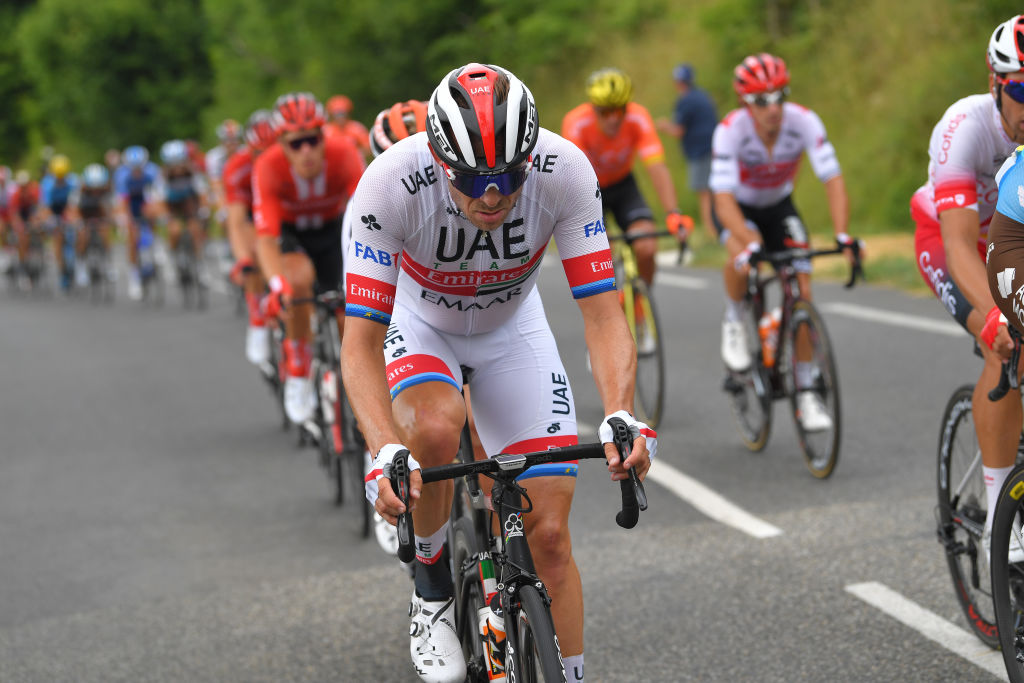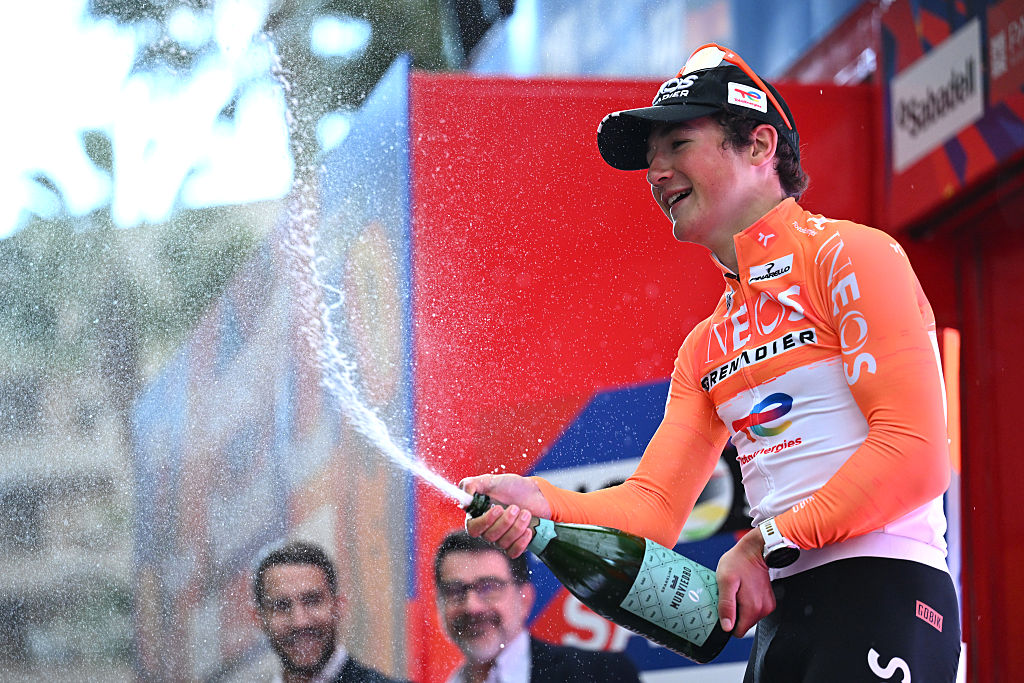Kristoff fully focused on Spring Classics
Norwegian targets seven-week block after missing out on Tour de France place

The latest race content, interviews, features, reviews and expert buying guides, direct to your inbox!
You are now subscribed
Your newsletter sign-up was successful
For Alexander Kristoff, with no place in UAE Team Emirates' squad for the Tour de France and no chance of victory in an exceptionally hilly World Championships and Olympics, success or failure in 2020 essentially boils down to how he fares in a seven-week period from the end of February to mid-April, from the early-season sprints until Paris-Roubaix.
In cycling, such a concentrated focus on a specific block of racing isn’t as unusual as it sounds, and could be worse; Grand Tour contenders are often judged on their performance over just three weeks in July.
For 32-year-old Kristoff, who has raced close to 80 days-a-season in recent years and has ridden the Tour de France every summer since 2013, the change in programme means the pressure this spring will be unusually high, with the Giro d'Italia his best chance to win Grand Tour sprints. UAE Team Emirates have opted to send Tadej Pogacar and Fernando Gaviria to the Tour de France.
Race-wise, there have also been variations in Kristoff’s early-season schedule. Fans of Middle Eastern racing may know that Kristoff is the record holder for stage wins in the Tour of Oman - nine to André Greipel’s five - but, even before the race was cancelled, Kristoff was due to ride this week's Volta ao Algarve after starting his season at the Volta a la Comunitat Valenciana and Clásica de Almería.
After that early Iberian block, he'll return, with some trepidation, to the 'Opening Weekend' of the Classics in Belgium, with Omloop Het Nieuwsblad on February 29 and Kuurne-Brussel-Kuurne on March 1.
"For sure I will have other races after the spring, but I can safely say I’d prefer to win Roubaix or Flanders than Hamburg or the GP Plouay," Kristoff said.
"There are only eight races in the Classics so it’s not like you have unlimited chances. But last year I had a bit of a comeback, so I hope I can do something similar to 2019."
The latest race content, interviews, features, reviews and expert buying guides, direct to your inbox!
Kristoff won Gent-Wevelgem last year and was also third at the Tour of Flanders, combining his endurance and speed to good effect.
"I’ve never done well in the Opening Weekend, maybe got one top-10 placing. I was always really nervous for the later Classics after I did Het Nieuwsblad, because I was so far back in that race," Kristoff admitted, before finding logic in his lack of form.
"I know from experience I’ve been far off the pace in Nieuwsblad and then been good in Flanders one month later. But it’s hard to maintain the shape all the way through."
Kristoff recalls that Greg Van Avermaet (CCC Team) managed to be good from February to late April, probably a reference to when the Belgian won Het Nieuwsblad and went on to win E3, Gent-Wevelgem, and Paris-Roubaix in his 'Golden Greg' season of 2017. But everything about Van Avermaet was exceptional that spring.
Kristoff finds hope for his own early spring form in his results at the Vuelta a la Comunitat Valenciana, where he began his 2020 season. He was third on stage 1, fourth on stage 5 and then second in Sunday's Clásica de Almería, beaten by Pascal Ackermann (Bora-Hansgrohe) but ahead of Elia Viviani (Cofidis).
"I have a feeling I’m going a bit better. If I look at last year, I got second on the last stage, and I got a third here already, so there’s a similar level. I did do Mallorca last year, but I did really badly there, so I feel like I kind of had a better start so far," Kristoff explained.
Apart from the hard reality of results, Kristoff knows the crunch question for any Classics racer in the build-up to the Opening Weekend.
"It's about if your weight is good, and I’m lighter than last year, because I was a bit heavy back then. If you saw the pictures when I won Wevelgem I was not the skinniest guy for sure, and this year I hope I will keep that drop in weight," he made clear.
"Also, I have a different bike, last year I used the Colnago Concept aero bike but now I'm using the V3R. It's a little bit less aero but more comfortable and a bit lighter. For the Classics, it should be helpful to have a lighter bike accelerating out of the corners, and it’s better on the cobbles."
But these are smaller variations on a larger theme. What will be a real voyage in the dark in 2020, he says, is the Giro d’Italia.
Asked how he will build for May after peaking for the cobbled Classics in April, Kristoff says somewhat ruefully "I must train", meaning that after Paris-Roubaix, as he puts it, "there’s not enough time to take the form down and build it up again.
"Instead, I will keep the base level good but it's very difficult to make a peak out of that form. I haven’t managed it a couple of times in the Tour, so I don’t know I’m not going to be able to do that for the Giro.
"If you have a good enough level, you should be able to compete in the sprint stages and in the slightly hillier ones but for me this year, the main focus is those eight Classic races in the spring."
Alasdair Fotheringham has been reporting on cycling since 1991. He has covered every Tour de France since 1992 bar one, as well as numerous other bike races of all shapes and sizes, ranging from the Olympic Games in 2008 to the now sadly defunct Subida a Urkiola hill climb in Spain. As well as working for Cyclingnews, he has also written for The Independent, The Guardian, ProCycling, The Express and Reuters.

